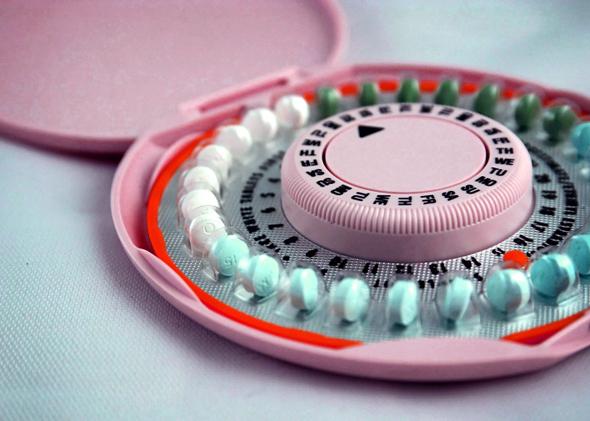“The Controversial Birth Control You’ve Never Heard Of,” a headline on the website of Cosmopolitan blares. The article is about women who have had bad experiences with a form of sterilization—not exactly birth control—called Essure. Essure is a procedure that involves inserting nickel and fiber coils into a woman’s fallopian tubes. Scar tissue then forms around the tubes over a three-month span, after which a woman will be unable to conceive. A woman quoted in the Cosmo article had a hypersensitivity to nickel and eventually had to get a hysterectomy. Erin Brockovich has recently taken up the anti-Essure cause.
But is Essure any more dangerous than any other kind of sterilization? Or is it part of a magazine staple I’ll call the birth control scare story. Most of the recent stories in this genre have had to do with the daily hormonal birth control pill Yaz and the monthly hormonal vaginal ring NuvaRing. (Whole books have been written because one lady had a bad experience with Yaz.) I asked Dr. Petra Casey, an associate professor of obstetrics and gynecology at the Mayo Clinic and the director of their complex contraception practice, about whether women should be concerned about any of these products.
“There should be counseling before the Essure is done,” Casey says, but she believes that it’s “a fine method of sterilization for the selected women who do not wish to have any future childbearing.” Like any other sterilization procedure, it has advantages and disadvantages. (To Cosmo’s credit, they include some pro-Essure sources, though the article gives more room to the horror stories.)
The great advantage is there’s no surgical procedure involved with Essure—the coils are implanted through the cervix. The disadvantage is it takes 12 weeks for the scar tissue to form (that formation is verified through a test). As for the nickel allergy, Casey says she doesn’t know how common it is—she’s not an allergist—but that women should be notified of the risk and that many women know they have a nickel allergy already because of contact with cheap jewelry.
Yaz and NuvaRing are in a different category. They’re both hormonal birth control methods that have a higher risk of blood clots than other hormonal birth control options. But Casey says that the risk of blood clots is still quite small with Yaz and NuvaRing. “When you see the scary articles that say with progestin drospirenone you get a threefold increased risk of embolism, that sounds really scary,” Casey says. “But if you translate that to absolute numbers, it’s [something like] 15 per 100,000 as opposed to 5 per 100,000.” Again, as with Essure, women should be counseled about these risks, but the methods shouldn’t be off the table. Birth control like Yaz, which has the synthetic hormone drospirenone, is good for treating mood disorders like PMS and PMDD, as well as acne. The NuvaRing is convenient because you only have to insert it once a month, and then you can forget about it.
So what does Casey recommend to her own patients? She told me that OB-GYNs are actually moving away from that old standby, the pill, and toward what doctors call LARCs—long-acting reversible contraception, like copper and hormonal IUDs—and that she now counsels patients to use LARCs as a “first line of contraception to consider,” not as an option after they didn’t like the pill. (Slate’s been preaching the joy of the IUD for five years already.) But what if, for whatever reason, you aren’t interested in a LARC? You still have plenty of options, because the moral of this story is: Don’t freak out the next time you read a story that is selling fear about birth control. And if you’re scared, go to your doctor, not to Cosmo.
Correction, Jan. 22, 2014: This post originally stated that the Essure story was in the latest issue of Cosmopolitan. It was on the website, not in the magazine.
